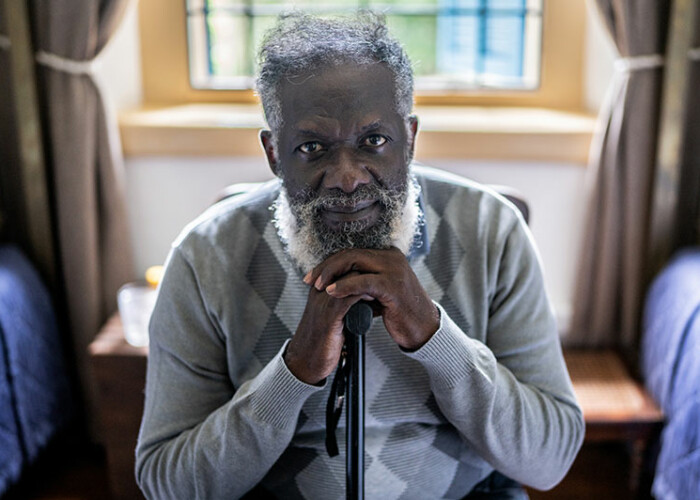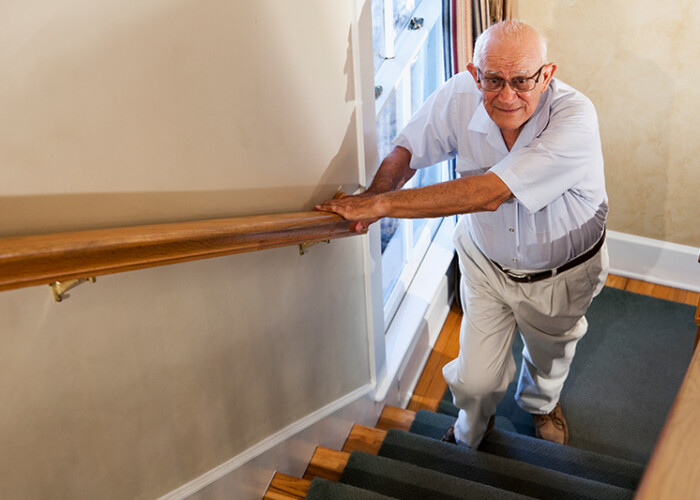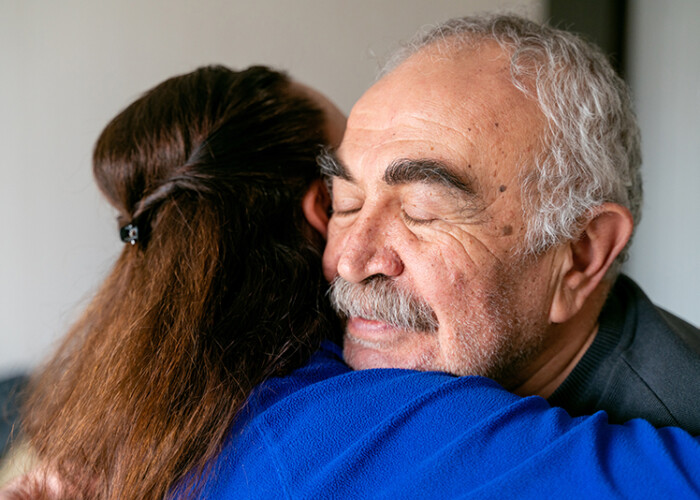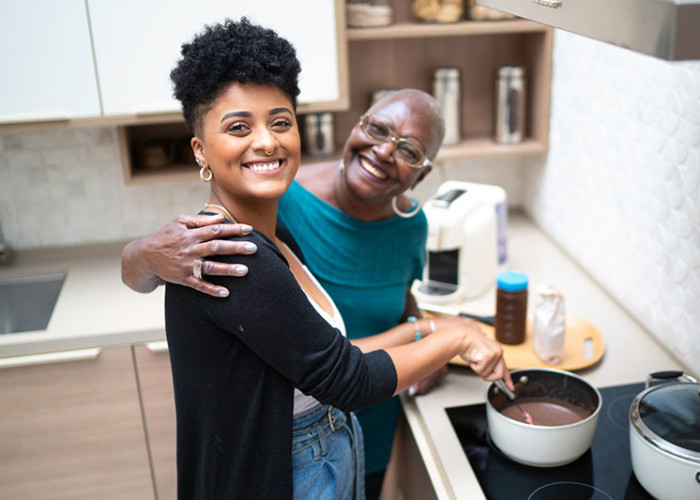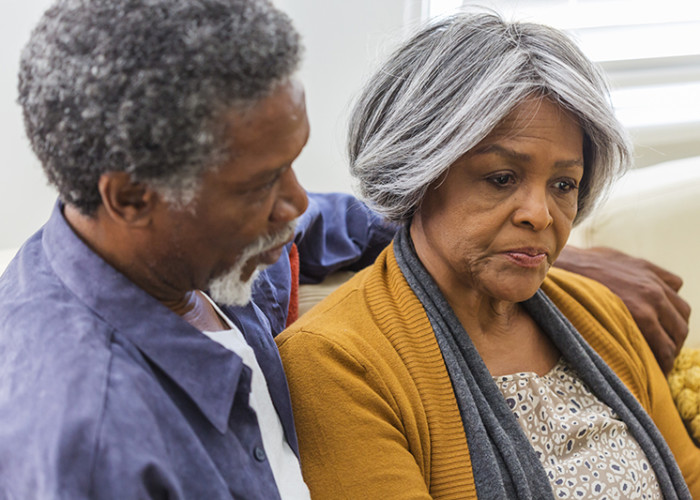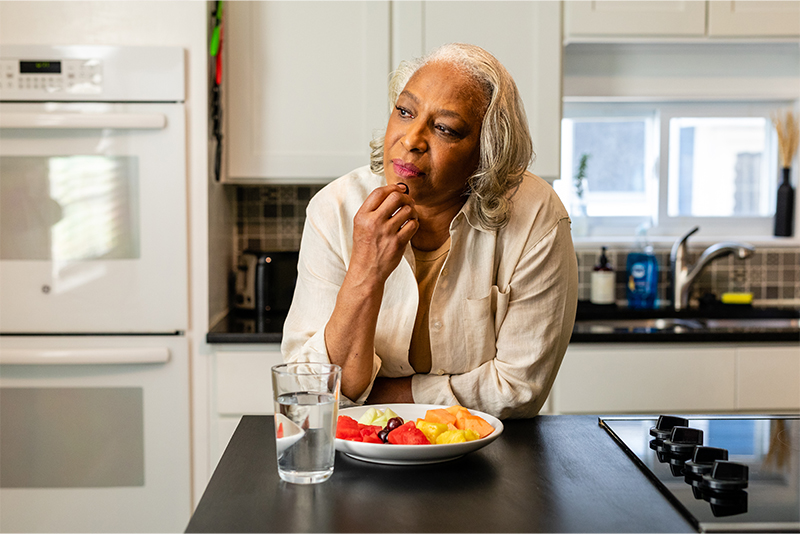Long Term Care
Read This Before Welcoming a New Caregiver Into the Home!
Welcoming a new caregiver into the home is a much smoother process with these tips.
The big day is here—your dad’s first day with his new caregiver! If your family is feeling a mix of relief, uncertainty, and even a little anxiety, you’re not alone. Welcoming a new caregiver into the home is a big adjustment, not just for the person receiving care, but for the entire family. The good news is that with some preparation, you can help set the stage for a positive, comfortable transition.
Celebrating our Veterans
On Monday, November 11, we stand together to provide sincere honor and appreciation to the courageous men and women you have given so much for our safety and freedom. We thank you for your courage, dedication, and hard work. And to the families of our Veterans, we thank you for all of your support, resilience, and sacrifice. It is our honor to be able to provide exceptional service and support to the Veterans and their families in our community.
Sincerely,
~The HIRED HANDS HOMECARE Team
What People With Alzheimer’s Want You to Know
Improve communication with someone you love by learning what people with Alzheimer’s want you to know.
If you’ve ever wished you could look a senior with dementia in the eye and understand exactly what they’re thinking, we just might be able to help you with that! Communicating effectively with someone with dementia isn’t easy, especially as the disease progresses. Following are several statements provided by people with Alzheimer’s to give you some insight into what it feels like to live with the disease.
You haven’t lost me. A diagnosis of dementia does impact a person in many ways, but it doesn’t change the essence of who they are. “I love the same people and doing the same things I did before my diagnosis,” explains Dale Rivard. It’s essential to recognize that while memory and cognitive abilities may decline, the … Read More »
Watch for These Early Signs of Mobility Problems in Older Adults
All family caregivers need to know the early signs of mobility problems in older adults in order to prevent falls or other serious injuries.
Benjamin Franklin certainly had it right: An ounce of prevention is really worth a pound of cure. When it comes to noticing and addressing the early signs of mobility problems in older adults, prevention is a must. Falls in seniors lead to 3 million emergency room visits, 300,000 hip fractures, and 32,000 deaths every year, according to research by the CDC.
Preempt a tragedy by keeping an eye out for these warning signs of increasing mobility issues in older loved ones:
Experiencing dizziness. Dizziness and issues with balance can develop from a variety of contributing factors that ultimately cause problems with mobility. It’s important to discover why these issues are taking place and address them … Read More »
Why Alzheimer’s Caregivers Say They Need to Go It Alone – And Why It’s a Bad Idea
“You can make it, but it’s easier if you don’t have to do it alone.” – Betty Ford
Alzheimer’s caregivers may feel as though they are the only ones who can provide the best care for an older loved one, but finding a care partner is vitally important.
As a family member caring for a loved one with dementia, you know firsthand how challenging it can be. It’s definitely never a role that Alzheimer’s caregivers should try to fill on their own. Yet, many caregivers struggle with seeking the support they need, intensifying stress and leaving minimal room for self-care, a vital aspect for those in caregiving roles.
See if you can relate to these top reasons given by family caregivers for attempting to provide care solo, and why they need to be reconsidered:
Dad would not want another … Read More »
4 Ways to Better Advocate for Your Older Loved Ones
Being a better advocate for your older loved ones begins with these four tactics.
“Unless someone like you cares a whole awful lot, nothing is going to get better. It’s not.” – Dr. Seuss, The Lorax
Serving as an advocate for your older loved ones is perhaps one of the greatest honors – and responsibilities – you’ll have as a family caregiver. It means fully comprehending their needs and wishes, and communicating them to those who can help to make sure they’re achieved.
Why You Need to Find a Geriatrician for the Best Senior Health Care
The best senior health care is provided by a geriatrician who is an expert in the unique needs of older adults.
If your child suddenly developed an illness, who would you call? It’s a no-brainer; many parents have the number on speed dial for the pediatrician they’ve carefully chosen to manage the medical care needs of their children. With their specialized training, working with a trusted pediatrician ensures the best possible care.
Likewise, selecting the best senior health care provider who focuses on specific health concerns of older adults is equally as important. However, sadly, the health care system as a whole has not placed a great focus on the unique health care needs of seniors. Dr. Carla Perissinotto, geriatrician and professor of medicine at the University of California, San Francisco, shares her alarm over this age-related health … Read More »
How to Be the Best Possible Caregiver
Taking steps to learn how to be the best possible caregiver will improve life in a variety of ways for the person in your care – and yourself.
If someone were providing care for you, how would you want that caregiver/care receiver relationship to look? What qualities would shift that level of care from ordinary to extraordinary? Placing yourself in the shoes of the person in your care is the first step to learning how to be the best possible caregiver – something that will have a lasting impact on both your family member and yourself!
Are You Being Followed? How to Overcome Dementia Shadowing
If you’re the primary caregiver for someone with dementia, you may be quite familiar with the challenges experienced in trying to find a quiet moment or two alone – to use the restroom, take a quick shower, or even simply walk into another room. Seniors with dementia can experience heightened anxiety and fear when a loved one is out of sight – a condition known as shadowing. And the behaviors that result can be extremely difficult to manage: anger, crying, or repeatedly asking where you are, to name a few. If you’re struggling with how to overcome dementia shadowing, our dementia care experts have a few tips for you to try.
What Causes Dementia Shadowing?
It helps to understand the reasoning behind shadowing. You are the person’s safe place, the one who helps them to make sense out of … Read More »
How to Effectively Handle the Extreme Emotions of Alzheimer’s
Screaming, crying, and other extreme emotions of Alzheimer’s can unnerve even the most seasoned family caregiver.
Of the many and varied challenging behaviors someone with Alzheimer’s may experience and display, perhaps the most heartbreaking is uncontrollable screaming and/or crying. Seeing a person you love in an inconsolable state of mind, and being completely unsure how to help or to understand what’s causing these extreme emotions of Alzheimer’s, is both painful and frustrating. How can you help a loved one with dementia feel calmer?
To begin with, realize that crying and yelling in dementia can occur as the result of:
Pain
Fear
Boredom
Sadness
Agitation
Frustration
Delusions, delirium, or hallucinations
Sundowning
An uncomfortable environment
Or a number of other factors
For the short-term, try these strategies to help:
Stay calm yourself, speaking to the senior in a soft, soothing tone of voice.
Try to uncover what’s causing the outburst. Maintaining a … Read More »





